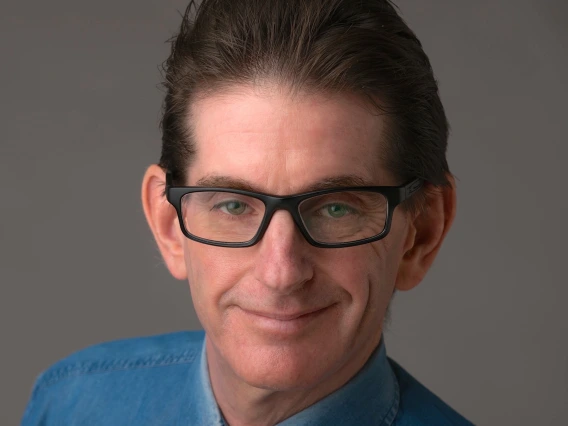
Even for a physician, the humanities is a lifelong journey, according to Dr. Ross Schwartzberg.
As a University of Arizona undergraduate student with his sights set on medical school, Ross Schwartzberg carved out space in his schedule to follow his passions of religion and history.
The dual focus paid off for Dr. Schwartzberg, who earned a bachelor’s degree in General Studies in 1985 and followed it up with a medical degree in 1990 and a successful career as a neuroradiologist. In honor of his achievements, Schwartzberg is named the College of Humanities 2023-2024 Alumnus of the Year.
“I immensely enjoyed my studies in the humanities and that certainly informs me when I’m interacting with patients,” he said. “As the scientific aspect of medicine has progressed in the 20th century, we became enamored with all the wonderful advances in technology, but in embracing that so strongly, we’ve lost our grip with the human aspect of medicine.”
Even as an undergraduate, Schwartzberg said he knew that what he was gaining by expanding his studies beyond pre-med courses would be more than just skills.
“You might say, ‘What do the humanities have to do with all this?’ I would say, ‘Everything.’ Yes it makes you more marketable, yes companies want students who know how to interact and integrate with others and adapt and be flexible,” he said. “I can’t say that I remember pulling out my calculus book and going through differential equations for fun. But I do pull down my history books still. Let’s not forget those advantages of studying the humanities.”
The connections between healing and faith are ancient and cross-cultural, Schwartzberg said, and his humanities background guides his daily life as a physician, helping him to be present with his patients and treat them with kindness and compassion.
“Inquiry into how the world works, history and the intersection of faith and reason, studying comparative religions, have been essential part of my life, and have strongly informed my practice of medicine,” he said. “The examination of what tethers us together, the examination of what binds us one another, now and across centuries, are key things that will help us learn how to connect one human to the next. We can remember that when there’s somebody suffering that addressing them as another human with dignity is of immense value.”
Dr. Schwartzberg has been a generous supporter of the College of Humanities, first creating the Fred & Barbara Borga Endowed Fund for Religious Studies to foster understanding and dialogue regarding religious traditions and their impact on health and medicine. The fund supports a lecture series, as well as undergraduate student scholarships.
Most recently, Dr. Schwartzberg and his wife Dr. Jackie Chang have committed to establishing a new endowment to support Interdisciplinary Studies students who have accepted an internship offer.
“An incredible joy for myself and my family has been from the donor side of the interaction with these students. These young men and women are so far ahead of where I was as far as their poise and understanding where they are in the world and what they’re trying to achieve. To talk to them and hear their stories and hear how genuine they are is really impressive,” Schwartzberg says. “Why would you give? I’m giving back. It’s really powerful. I can’t think of anything better to put my resources to than contributing in some way to the education of these fantastic, impressive young people.”

